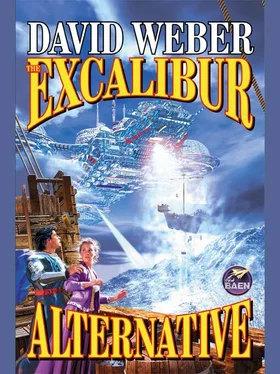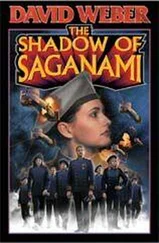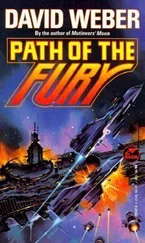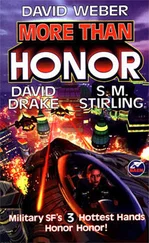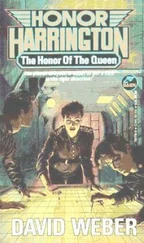David Weber - The Excalibur Alternative
Здесь есть возможность читать онлайн «David Weber - The Excalibur Alternative» весь текст электронной книги совершенно бесплатно (целиком полную версию без сокращений). В некоторых случаях можно слушать аудио, скачать через торрент в формате fb2 и присутствует краткое содержание. ISBN: , Издательство: Baen Publishing Enterprises, Жанр: Фантастика и фэнтези, на английском языке. Описание произведения, (предисловие) а так же отзывы посетителей доступны на портале библиотеки ЛибКат.
- Название:The Excalibur Alternative
- Автор:
- Издательство:Baen Publishing Enterprises
- Жанр:
- Год:неизвестен
- ISBN:0-671-31860-8
- Рейтинг книги:4 / 5. Голосов: 1
-
Избранное:Добавить в избранное
- Отзывы:
-
Ваша оценка:
- 80
- 1
- 2
- 3
- 4
- 5
The Excalibur Alternative: краткое содержание, описание и аннотация
Предлагаем к чтению аннотацию, описание, краткое содержание или предисловие (зависит от того, что написал сам автор книги «The Excalibur Alternative»). Если вы не нашли необходимую информацию о книге — напишите в комментариях, мы постараемся отыскать её.
The Excalibur Alternative — читать онлайн бесплатно полную книгу (весь текст) целиком
Ниже представлен текст книги, разбитый по страницам. Система сохранения места последней прочитанной страницы, позволяет с удобством читать онлайн бесплатно книгу «The Excalibur Alternative», без необходимости каждый раз заново искать на чём Вы остановились. Поставьте закладку, и сможете в любой момент перейти на страницу, на которой закончили чтение.
Интервал:
Закладка:
There had been no moving him from his determination to drive his "lesson" home, and he'd followed through on the sentence. He had compelled the remainder of the English, including their women and children, who'd been awake at the time, to watch as the Hathori executed each of the chosen victims one by one. The men had died as well as anyone could, with Skinnet setting the example for them all, and the lesson that the Hathori were as inviolate as the demon-jester himself had certainly gone home among their surviving companions. But along with that lesson had come a fresh, colder, and far more deadly hatred of the demon-jester and the wart-faces alike, and Sir George wondered if the demon-jester recognized the bitter depth of that hate. If he did, he gave no sign of it, so perhaps he didn't. Or perhaps he simply didn't care. Perhaps, despite all evidence to the contrary, he still believed the English were no more than the Hathori themselves: brutal, incurious enforcers, smart enough to obey orders, but with no interest in anything beyond their orders.
That would have required even more arrogance—or stupidity—than Sir George had thought even the demon-jester capable of, yet the better he'd come to know his "Commander" the less he was prepared to dismiss the possibility. Anything was possible where the contemptuous "Commander's" prejudices were concerned, but the baron had also concluded that the limitations of the Hathori were the true reason the demon-jester had required the services of his own Englishmen. As individuals, the wart-faces were formidable killing machines, but they lacked the cohesion, the disciplined intelligence and ability, to fight as soldiers . Surely even the demon-jester must be aware, if only intellectually, that there were enormous differences between his pet Hathori and the English he had compelled to serve him, however little he showed it.
But whatever the wart-faces' shortcomings, it was clear that the eternally silent dragon-men were a very different proposition. Computer might have declined to answer questions about them, but the demon-jester had never once mentioned them directly in any of the conferences and conversations to which he summoned Sir George, and that simple omission all by itself carried an unmistakable significance. Surely there was some reason the demon-jester never so much as spoke of them, yet neither Sir George nor any of his closest advisers had been able to determine what that reason was. They were simply always there, looming in the background in their one-piece red and blue garments, as inscrutable and ominous as any cathedral gargoyle. Despite their greater height, they ought to have looked far less impressive than the armored, ax-wielding Hathori, but Sir George and his men never permitted themselves to forget the deadly lightning weapons sheathed at their belts as they guarded the demon-jester and the crew of the huge vessel.
Now the dragon-man who had accompanied Sir George this far returned the baron's glance with impassive silver eyes, motionless as a lizard on a stone and with the same sense of poised, absolute readiness. The glowing wall sealed the English into their own portion of their ship-prison, and none of them had yet been able to discover how the portal through it was opened or closed. They'd discovered a great deal about other controls in their quarters, ways to turn any number of clever devices on and off, and Sir George and Father Timothy were certain that the glowing wall must be controlled in some similar, or at least comparable, fashion, yet they'd never been able to detect how it was done.
Which was as well for their masters, Sir George thought grimly, and nodded to the dragon-man as he stepped past him into the corridor beyond the wall. As always, the towering creature didn't react in any way to the human gesture, but somehow Sir George felt certain the dragon-men recognized it as an acknowledgment and a courtesy of sorts. Whatever else they were, they were obviously capable of thought, or the demon-jester's guild would have replaced them with more of its clever mechanical devices. Equally obviously, it regarded both the Hathori and the dragon-men much as it did the English: as more or less domesticated, moderately dangerous, useful beasts of burden, although the demon-jester clearly placed greater faith in the loyalty of the dragon-men.
Sir George had often wondered how the dragon-men regarded the English. Did they, like the demon-jester's kind, consider them primitives and barbarians, beneath their own notice? Certainly they possessed and used more of the wondrous tools of their masters, but that didn't seem to make them their masters' equals or full members of the starship's crew. So did they see the English as companions in servitude, instead? Or did they cling to the need to look down upon the humans as a way to make themselves appear less wretched by comparison?
It seemed unlikely to make a great deal of difference either way, as neither Sir George, nor Father Timothy, nor any other human had ever discovered a way to communicate with them. Not even Matilda had been able to suggest a method which might have succeeded. Of course, their masters gave them precious little opportunity to experiment, but it was impossible to completely eliminate all physical contact between humans and dragon-men. Not if the dragon-men were to be useful as guards against the humans, at any rate. Most of the other humans had completely abandoned the task, but Father Timothy continued to try. The Dominican insisted that the dragon-men were far more intelligent than the Hathori, and that with intelligence must come at least the potential for communication. He was determined to someday discover a way to communicate with them, and Sir George shared his confessor's hopes for eventual success... although he lacked the priest's patience and dogged faith that he would ever achieve it.
Not even Father Timothy, on the other hand, still sought to communicate with the Hathori.
Sir George snorted at his own cross-grained nature as he followed the guiding light down the empty passageway. He shared Sir Timothy's hopes yet lacked the other's faith, a contradiction if ever he'd heard of one. Yet he couldn't quite turn off that tiny sprig of hope, and he often found himself dreaming of the dragon-men. Indeed, he'd dreamed of them more often during the last few periods of wakefulness than in quite some time.
His thoughts broke off as the guide light reached another hatch and stopped. It bobbed there imperiously, as if impatient with his slow progress, and he grinned. Such guides were necessary, for the constantly changing internal architecture of the ship could be bewildering, especially to one who spent almost all of his time aboard it locked into the portion assigned to the English. Sir George had been told by the demon-jester that the guide lights were only another of the endless mechanisms available to his masters, without any intelligence of their own, and he supposed he believed the alien. Yet he sometimes wondered, especially at times like this, when the lights twitched so impatiently, scolding him for dawdling and eager to be off about some fresh business of their own.
He stepped through the indicated hatch, and the light whisked off with a final bob and dodge. He watched it go, then stepped back and turned as the hatch closed.
The chamber was probably the same one to which the lights had guided him the last time the "Commander" summoned him, although they'd followed nothing remotely like the same path to reach it and its appearance, as usual, had changed completely between visits. This time, it was octagonal, with hatches in each wall, and perhaps fifteen feet across. Unlike the forest glades or the undersea vistas the demon-jester seemed to prefer for most of his meetings, this time the chamber was sparsely furnished, almost bare, with unadorned bulkheads of the ubiquitous bronze alloy. A glowing table at its center supported its sole decoration, one of the marvels the demon-jester called a "light sculpture." Sir George had no idea how the things were made, but they always fascinated him. All were beautiful, though the beauty was often strange to human eyes—so strange, sometimes, as to make one uneasy, even frightened—and almost always subtle. This one was a thing of flowing angles and forms, of brilliant color threaded through a cool background of blues and greens, and he gazed upon it in delight as its soothing presence flowed over him.
Читать дальшеИнтервал:
Закладка:
Похожие книги на «The Excalibur Alternative»
Представляем Вашему вниманию похожие книги на «The Excalibur Alternative» списком для выбора. Мы отобрали схожую по названию и смыслу литературу в надежде предоставить читателям больше вариантов отыскать новые, интересные, ещё непрочитанные произведения.
Обсуждение, отзывы о книге «The Excalibur Alternative» и просто собственные мнения читателей. Оставьте ваши комментарии, напишите, что Вы думаете о произведении, его смысле или главных героях. Укажите что конкретно понравилось, а что нет, и почему Вы так считаете.
